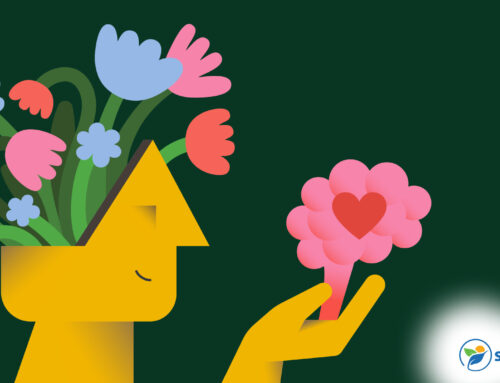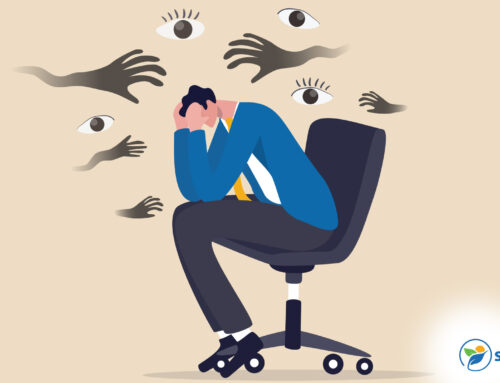When you’re going through the recovery process, it’s essential to have a strong support system. Having other people in your corner keeps you accountable and motivates you to stick with your treatment plan, reducing the risk of relapse. Although family members and friends are an important part of your support system, it’s also helpful to have peer support from someone who understands what it’s like to recover from a substance use disorder. Learn more about peer support in mental health and discover how it can help you overcome your addiction.
What Does Peer Support Mean?
According to the Substance Abuse and Mental Health Services Administration, peer support involves learning from someone who’s been successful at recovering from addiction. This type of support may be formal or informal. For example, you may get peer support in mental health from one of your family members or friends.
Many recovery programs also have peer support workers available to advocate on your behalf, share helpful resources and mentor you through each stage of the recovery process. Peer support workers often lead group meetings or spend time building strong recovery communities, increasing access to mentorship and understanding.
Why Is Peer Support in Mental Health So Important?
Recovery isn’t something that happens overnight. It’s a process involving several types of treatment, such as counseling, medications and holistic therapies to support your physical and mental health. Most of these steps involve support from clinical professionals, such as therapists, counselors, physicians and nurses. Although addiction treatment professionals are highly skilled and compassionate, they don’t necessarily know what it’s like to recover from a substance use disorder. That’s why peer support in mental health is so important.
Peer support gives you direct access to someone who understands exactly what you’re going through, making you feel seen and heard as you work through your recovery. These are just a few of the benefits of having a peer share their knowledge and insight.
Validation and Empowerment
When you talk with a friend or family member who’s never struggled with substance abuse, they may invalidate your emotions, either intentionally or unintentionally. Invalidation means someone makes you feel ignored, rejected or judged. For example, if you share that you have six or seven drinks every night, a friend or family member may judge you for drinking too much. Instead of helping you recover, this type of judgment makes you feel ashamed and discourages you from asking for much-needed support.
Someone who’s recovered from a substance use disorder knows what it’s like to struggle with shame. They may have experience with binge drinking, abusing prescription drugs or mixing illicit substances to enhance their effects. You may even interact with someone who lost their job or had to stop spending time with their children due to substance abuse. Rather than judging you, a peer can use their experiences to validate your feelings and inspire you to make a positive change in your life.
Every time you meet with one of your peers, you’re reminded of how good life can be without drugs or alcohol, keeping you motivated at each stage of the process. Therefore, peer support in mental health empowers you to begin your own recovery and stick with it even when you encounter obstacles.
Knowledge and Coping Strategies
Peer support statistics show that participating in peer support activities reduces the risk of relapse. In one study, 86% of people who attended support group meetings reported no drug or alcohol use within the 30 days preceding their 6-month follow-up appointments. Nearly 90% of participants also stated that they found the support services helpful to their recovery.
One reason peer support is so effective is that you get to learn what worked for other people and then apply it to your own life. Whether you’re having informal conversations with peers or attending structured meetings, you gain knowledge about how addiction affects your life and then learn what to do to overcome your biggest triggers. You also have the opportunity to learn helpful strategies for coping with stress, anxiety, frustration and other uncomfortable emotions. Strengthening your coping skills gives you the confidence you need to resolve problems in a productive way instead of using drugs or alcohol to hide your feelings.
Trust and Connection
During peer support group meetings, participants reveal highly personal details about themselves, such as how often they use illicit substances or how addiction has interfered with their ability to work, raise a family, finish school or accomplish other goals. This brings group members closer together and helps establish a sense of trust among them. Once you have strong connections with your peers, you can use their advice to improve your own situation.
Over time, you’ll get comfortable sharing your challenges, successes, hopes and dreams, ensuring you remain committed to your recovery. If you stumble, you’ll have people there to support you and help you get back on the right path, reducing your risk of relapse and making you feel more confident in your abilities.
Complementing Professional Care
Peer support also complements the care you receive from therapists, psychiatrists and other professionals. For example, if you have a breakthrough during a therapy session, you can discuss it with your peers to gain more insight into what it means and how you can use it to recover from your substance use disorder. Because peers have personal experience with addiction recovery, they can give you advice based on their experiences — something many mental health professionals can’t do.
Discover the Benefits of Peer Support
If a substance use disorder is interfering with your life, don’t be afraid to ask for help. Contact Sunlight Recovery to begin your recovery journey. You’ll have access to trained professionals and knowledgeable peers, giving you the support and encouragement you need to heal from addiction.






